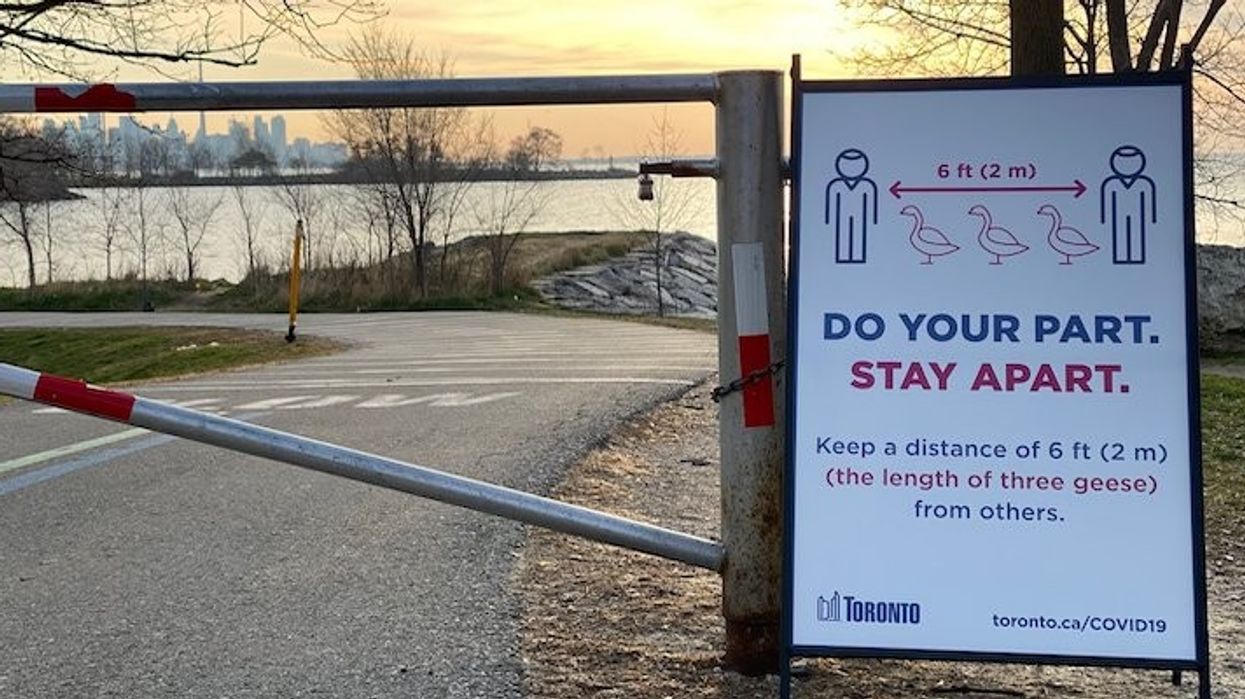As COVID-19 continues to spread across the country, every level of government has said it will still be some time until precautions like physical distancing, event cancellations, and the closure of all non-essential businesses are lifted.
Here in Toronto, the City has taken major steps to slow the community spread of the virus, including enacting a state of emergency order a month ago. And while the past month may have felt like the longest period of time in history, it hasn't gone without merit, as the critical time helped save lives, according to Toronto's Chief Medical Officer of Health, Dr. Eileen de Villa.
RELATED:
- COVID-19 Could Kill Over 60% of Toronto Small Businesses in 3 Months: Survey
- All Non-Essential Businesses in Ontario to Remain Closed Until May 6
- What Will Toronto’s Real Estate Industry Look Like in a Post-COVID World?
During the City's daily briefing on Thursday, Dr. de Villa looked back on March 23 — which was the day that she made the unprecedented step to advise Mayor John Tory to declare a state of emergency due to the coronavirus crisis.
"I distinctly remember the day that everything changed for all of us. The day that I knew I needed to ask each and everyone of you to take extreme action to protect our city's health," de Villa said during the briefing.
And while the measures were sudden and drastic, de Villa said the City made the right call and the declaration helped protect Toronto's three-million residents.
A month into the COVID-19 outbreak in Toronto, city officials have said the number of cases is lower than initially expected because people did their part and took public-health measures seriously. When the declaration was enacted, there were only 304 cases in the city but since then, more than 4,000 cases have been reported.
On Thursday, Toronto Public Health said there are now 4,347 cases in the city. Of those, 293 patients are in hospital with 106 in the ICU. At this time, just 286 cases have recovered and 222 people have died.
During the briefing, Mayor Tory said the sacrifices residents have made appear to be paying off, after projections shared this week revealed Toronto is flattening the curve and much progress has been made.
Tory added there are still some people who continue to break COVID-19 restrictions and in the past month enforcement officers have issued:
- 64 tickets to non-essential businesses, 133 notices, and educating 60 people.
- 477 tickets for non-compliance in parks, 728 notices, and educating 10,654 people
- 49 tickets for gatherings of more than five people.
But Tory said past month has not been without tragedy, adding that COVID-19 continues to devastate the community and impact the city's most vulnerable which includes residents living in long-term care, retirement homes, hospitals, shelters, and respite sites.
As of April 22, there are 1,203 active resident cases in Toronto long-term care homes, retirement homes, and hospitals. This is in addition to 142 staff cases, and 139 deaths. The City is also monitoring 102 COVID-19 cases in local shelters, 10 of which are being treated in hospital. At this time, there have been zero deaths from shelter cases.
On Thursday, Premier Doug Ford announced all emergency orders currently in place under the Emergency Management and Civil Protection Act in the province will remain in effect until May 6.
In turn, residents are being reminded to stay home and follow the advice from public health and to protect themselves and others by continuing to stay home, stay safe, and only venturing out to buy essential supplies once a week.
"We are a month into this emergency and while it is far from over, we have shown over the last month that we can rise to the challenge – the greatest challenge of this generation," said Mayor Tory.
"Now more than ever, it is important that we all stay committed to following the advice of our public health professionals so that we can beat COVID-19, reopen our city, and make sure that Toronto comes back stronger than ever."





















